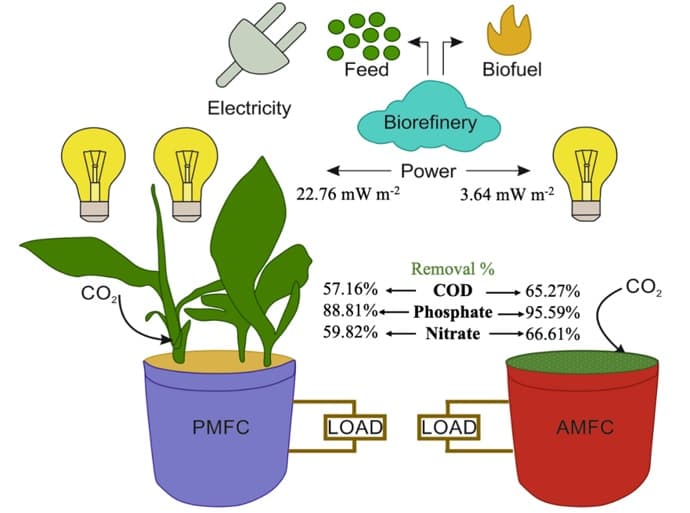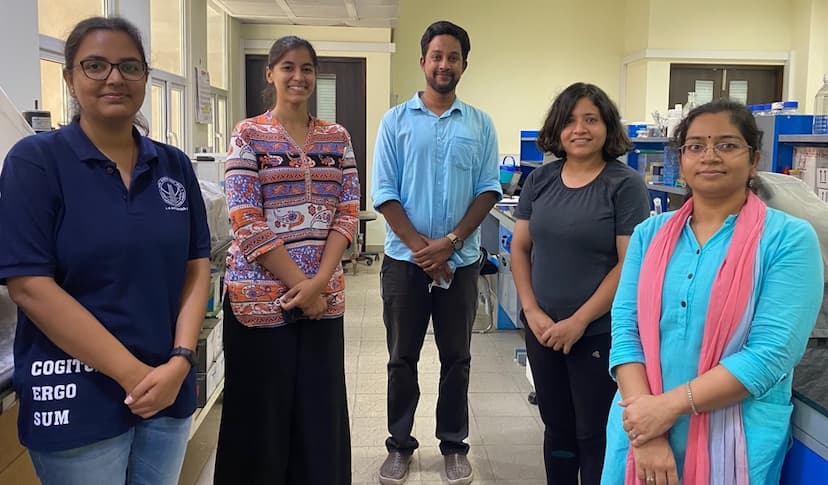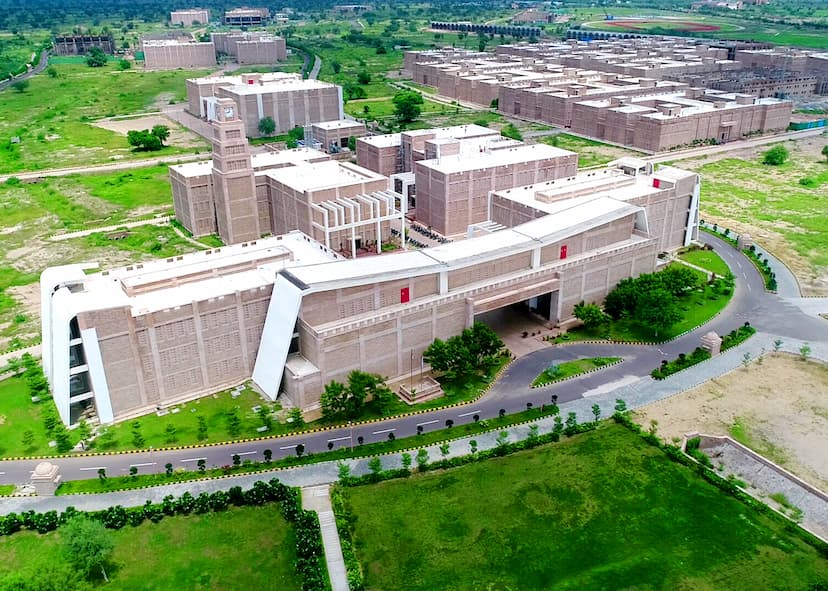IIT Jodhpur researchers use great plants to generate power

IIT Jodhpur researchers have demonstrated for the first time that plant based microbial fuel cells can generate power profitably from waste water compared to algae-based systems.


The results
Results of the work done by IIT Jodhpur researchers were published in the journal ‘Bioresource Technology.’ The work was sponsored by Department of Science and Technology of Government of India through INSPIRE PhD Fellowship Scheme. The paper has been co-authored by Arti Sharma, Sanjana Gajbhiye, Sweta Chauhan, and Dr Chhabra.
Read More – Top 20 IIITs of India
Treatment
Wastewater treatment is an important activity in any civilized society and the increasing generation of large amounts of domestic wastewater has necessitated development of newer treatment methods that are energy efficient and scalable, say IIT Jodhpur researchers.
Organic waste materials have a lot of latent energy – domestic waste contains nine times more energy than the treatment consumes – there has been interest all over the world to generate energy from waste during the process of waste treatment, say IIT Jodhpur researchers.


While the idea of using microbes to produce electricity was proposed as early as 1911 by Michael Potter, a professor of botany at the University of Durham, its use in fuel cells is a recent development and promises to solve two separate problems – the treatment of waste and energy generation, says Dr. Meenu Chhabra.
In MFCs, live microbes act on the waste organic matter to release the electrons that are extracted with an external load, thereby generating power, said Dr. Chhabra who led the team of IIT Jodhpur researchers.

Photosynthetic MFCs
Photosynthetic MFCs uses algae or plant to generate oxygen from waste at the cathode of the fuel cell, say IIT Jodhpur researchers.
Algae-based systems have been extensively studied in recent years because algae grow faster and easily but are sensitive to cultivation conditions, say IIT Jodhpur researchers.
Plant systems are slower to build and have lower efficiencies than algae-based MFCs but are more robust.


IIT Jodhpur researchers compared the two in terms of pollutant removal efficiency and efficiency of electrical energy generation. IIT Jodhpur researchers used Canna Indica for plant-based MFC and Chlorella vulgaris for the algae-based MFC.
This study was conducted under outdoor conditions using natural wastewater from the decentralized wastewater treatment plant of IIT Jodhpur, said Dr. Chhabra.
We found that plant MFCs are better suited because they are robust, stable, and achieve high power output, said Dr. Chhabra who led IIT Jodhpur researchers.
This observation is significant because plant systems are currently underrated because of their low growth rate and large space requirements than microalgae-based systems, but it seems that the power output overrides the above problems, say IIT Jodhpur researchers.
Plans
IIT Jodhpur researchers plan to microbial fuel cells further and study such aspects as microbial communities analysis, long-term operation, rhizosphere characterization, and design optimization, in order to realise the potential of MFCs in wastewater treatment and alternative power generation.
About IIT Jodhpur
Indian Institute of Technology Jodhpur was established in 2008, to foster technology education and research in India. The Institute is committed to technological thought and action to benefit the economic development of India. Scholarship in teaching and learning; Scholarship in research and creative accomplishments; and relevance to Industry are three driving forces for us at IIT Jodhpur.
IIT Jodhpur functions from its sprawling residential Permanent Campus of 852 acres on National Highway 65, North-Northwest of Jodhpur towards Nagaur. This campus is meticulously planned and envisioned to stand as a symbol of academics. A large parcel of the Permanent Campus (of about 182 acres) is set aside for the development of a Technology Park to strengthen institute-industry interactions.

The Institute is committed to a multidisciplinary approach of technology development. Hence, it has established state-of-the-art laboratories for basic research and has organized its academic degree activities through Departments and its coordinated research through Centers for Technologies.
S Vishnu Sharmaa now works with collegechalo.com in the news team. His work involves writing articles related to the education sector in India with a keen focus on higher education issues. Journalism has always been a passion for him. He has more than 10 years of enriching experience with various media organizations like Eenadu, Webdunia, News Today, Infodea. He also has a strong interest in writing about defence and railway related issues.






